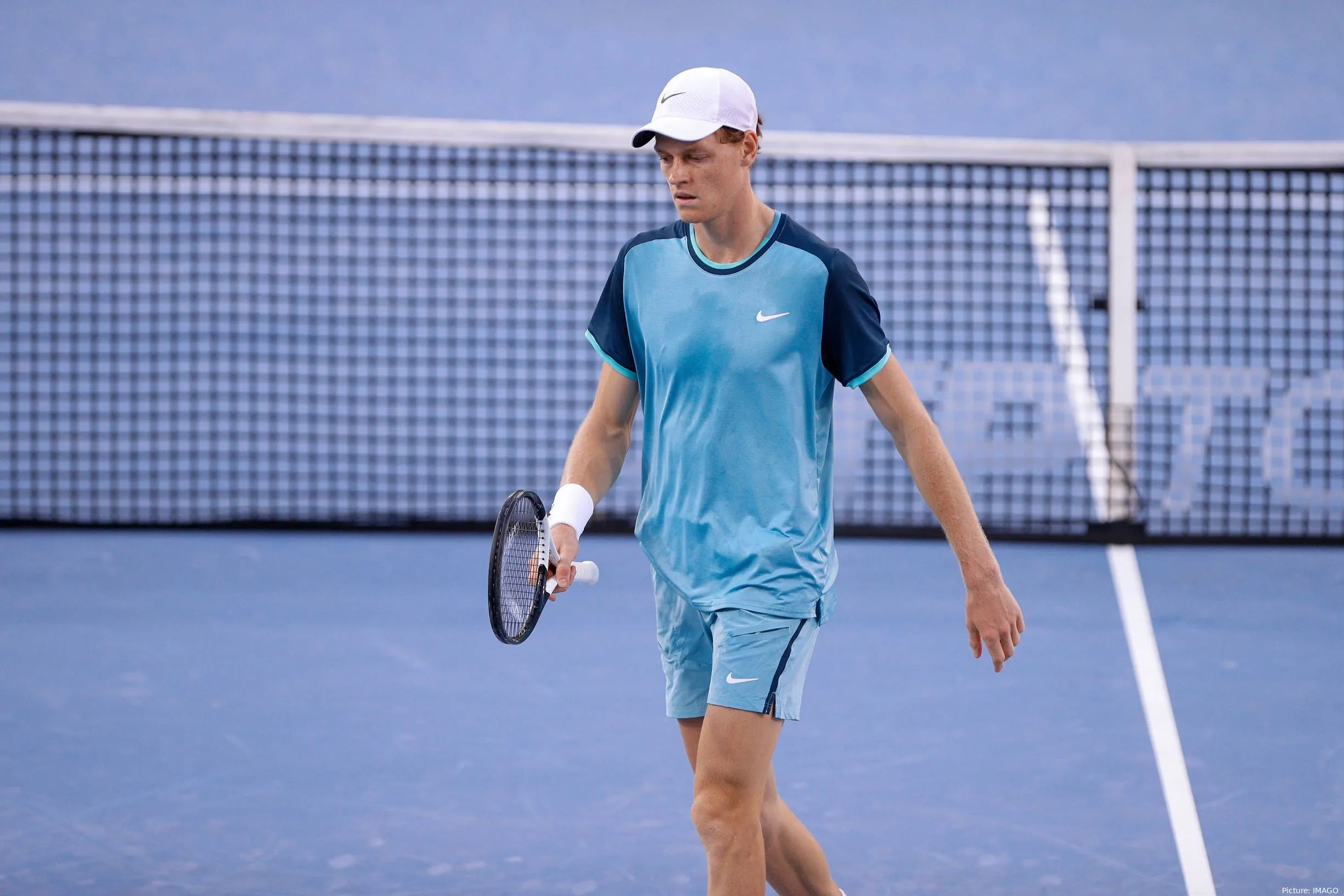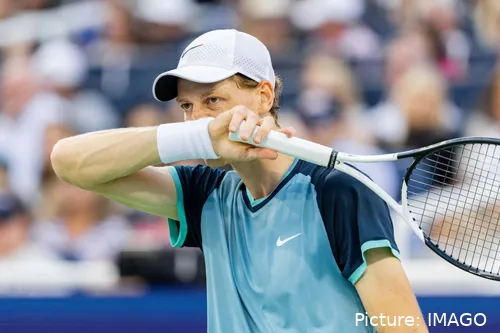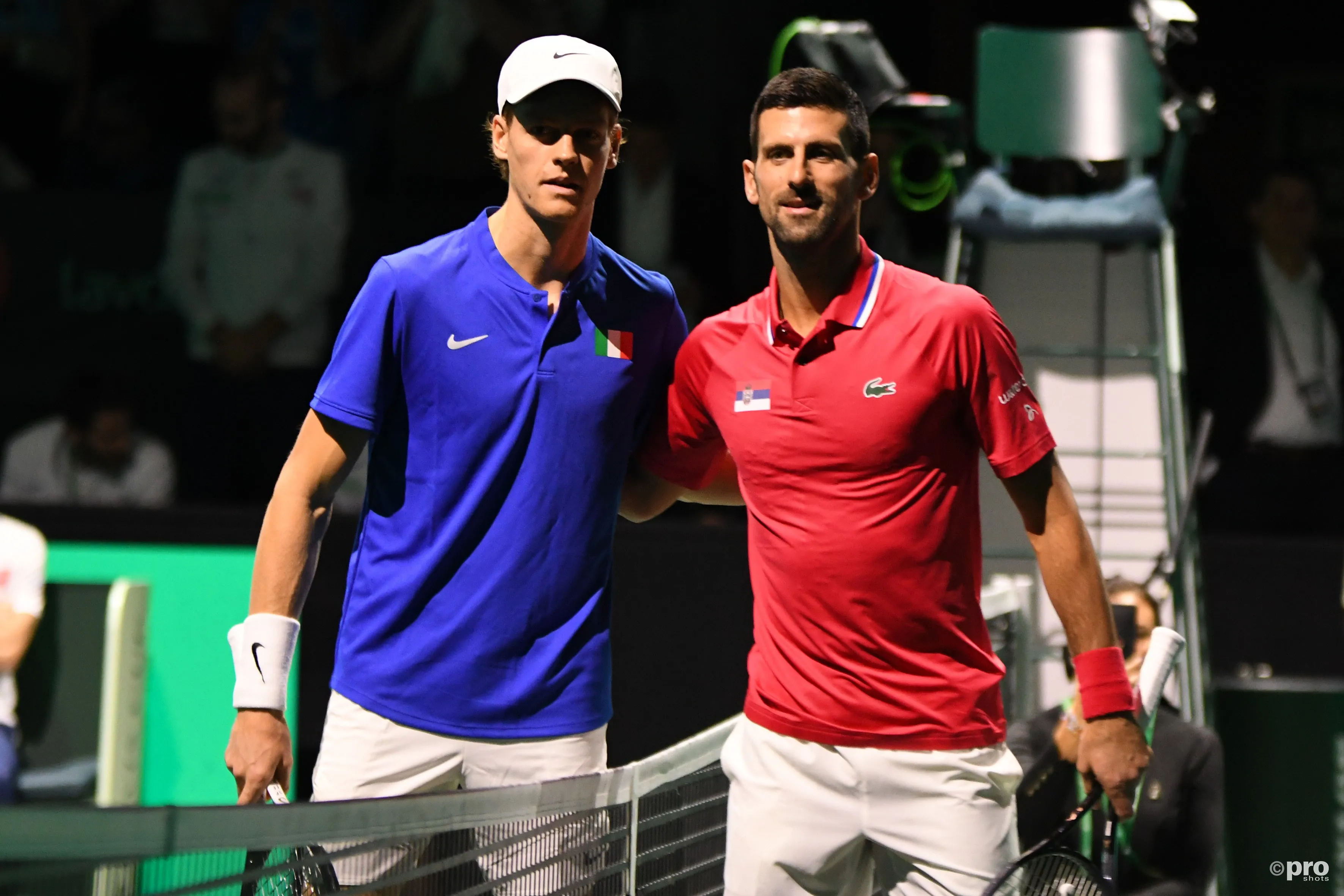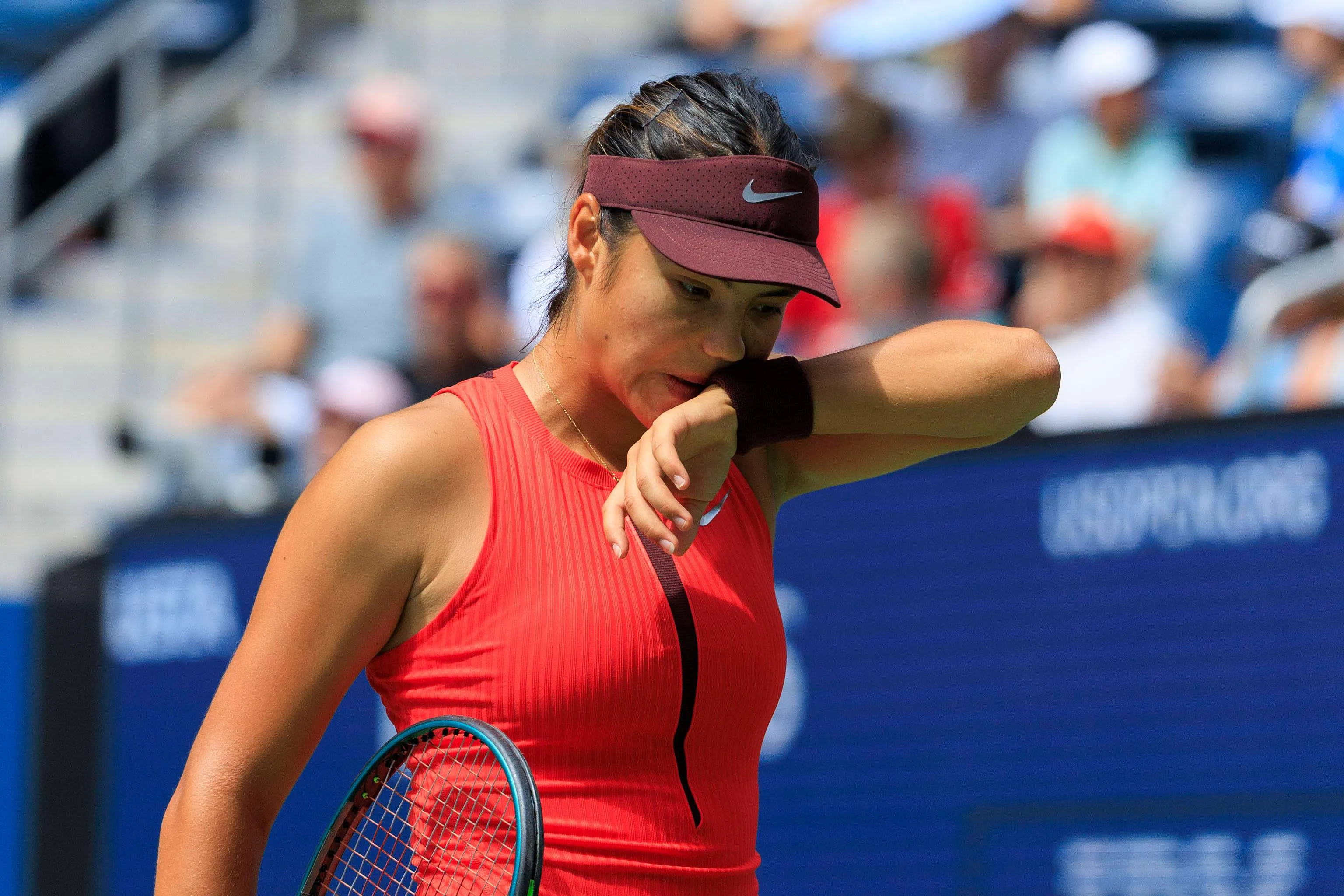"It's the worst doping job of all time": Jannik Sinner trying to dope makes little sense says Andy Roddick due to little benefit
ATPSaturday, 24 August 2024 at 10:39

Andy Roddick is a former tennis player who is now a media member and he recently discussed Jannik Sinner on his Served with Andy Roddick podcast.
Roddick is a former world number one and Grand Slam champion who spent 12 years on the tennis Tour. He's one of the most widely respected players out there, and these days, he's part of the tennis media.
In the most recent episode, Roddick did a live episode on site at the US Open, and he talked about Jannik Sinner and his doping situation. This past week, it was announced that Jannik Sinner tested positive twice for a banned substance in March. Lots of people had lots of questions and Roddick tried his best to explain what had happened in his view.
To provide a bit of context, the Italian competed at the Indian Wells Masters in March. He then tested positive for a banned substance but wasn't immediately suspended from the sport and was allowed to explain how it happened per the procedures.
Read also
After doing so, he launched a soft appeal into the matter, which essentially allowed him to compete while an investigation was going on. This 'soft appeal' is a crucial detail, as it's a process that allows athletes to continue competing while a doping investigation is ongoing, provided they can provide a reasonable explanation for the positive test. In Sinner's case, it worked because the explanation he provided was deemed by the ITIA as good enough for the time being.
The news of Sinner's doping rocked the tennis community, causing a wave of shock and surprise. The sudden overflow of information and hastened reactions by many left most of stunned. It took a while for journalists and fans to organize the information into a timeline which still ended up giving many of us some pause. There were a lot of questions to be answered and as someone with more insight than the average tennis fan, Roddick dissected the incident during his recent podcast episode.
Roddick first addressed the suspension claims against Sinner, highlighting the meticulousness of the whole process. He found the argument that players were previously suspended for simply missing a test to be quite hollow, as it's hard to believe that someone could miss three tests accidentally. The process is designed to be stringent, and a suspension is only issued after three missed tests, a fact that Roddick emphasized.
"I'm going to tell you things that I know as fact. People say there are people who were suspended for simply missing a test. To me, it's a hollow argument. I played for 12 years, and you only miss a test if you have a reason to miss a test," he said on Served.
Roddick then provided more detail about what exactly was found in his body thanks to information which was provided to him by Sinner's coach Brad Gilbert. To say it was only in traces would be an understatement. There was barely anything there, and that was in line with Sinner's explanation of what had happened because if he had tried to dope intentionally the amount would be much higher.
"The amount in his system is one billionth of a gram or 58.000 times smaller than a grain of salt. It's consistent with the explanation. The trainer had a cut and tried to heal it with some cream that is legal in Italy. It's not legal here. He massages Jannik, and he rubs it into a psoriasis wound. Simple enough."
Roddick then explained that once a player tests positive, it doesn't have to be made public. Most people assumed that it does, including Roddick, but it only has to be made public after a final decision comes which in Sinner's case came yesterday. Nobody that was included in the process knew which sample belonged to Sinner because that's how it's set up. Talks of preferential treatment are pretty laughable.
"All this talk of sinister things and preferential treatment, you're a number on a bottle, you're allowed to appeal, you're innocent until proven guilty, it didn't come out until yesterday."
Read also
What did worry Roddick was the fact that the substance got anywhere near him. Tennis has a pretty long list of banned substances, longer than any other sport, which is why the players and their staff need to be vigilant. His physio wasn't, and that nearly ended catastrophically for Sinner.
"Tennis has the largest list of banned substances of all sports. I'm not sure how this stuff got anywhere near him."
He then poked a bit of fun at the whole situation, telling the live crowd to imagine that Sinner intentionally tried to dope. If he did, then it would be one of the worst doping attempts he's ever seen because the amount found would have no effect on his performance. It did, however, show up on the test, so risking all of what you've achieved for something that will give you zero benefit made very little sense.
"Imagine if he's trying to dope. It's the worst doping job of all time because he's getting no benefit. It's literally less than a grain of salt. I can't think he'd dope that badly to risk everything. This is the s***iest doping effort I've seen in my life, if that's what it is."

Would be the worst job ever if he decided to d
Roddick then talked about one situation that he wasn't aware of before this thing with Sinner happened. There is a lot of talk in tennis that a tennis player is always responsible for what goes into his body. Many people believe that even if a player didn't dope intentionally, a positive doping test warrants a suspension.
After the Sinner news broke, Roddick received a text from an active player who expressed interest in seeing what he thought of it. The player then shared a story about how he found himself in Sinner's situation in the past. He received an e-mail from the organisation stating that he has five days to produce an explanation for testing positive for a banned substance.
It was a hugely stressful situation, and the player simply retold his story. What ended up happening was that 40 players tested positive for the same substances along with him at that Challenger event in Brazil, which helped their case. It was pretty evident that it was accidental exposure through food, but it gave Roddick a new perspective on the whole thing.
"I got a text from a current player, whom I will not name, so he got one of these e-mails that said you were under investigation. You have five days to give us a detailed written explanation. I never heard about this story. All he could do was write his truth. He ate contaminated food. Forty players tested positive. We would have lost 30 % of the Top 300 players if we had a 'zero tolerance' policy. In tennis, 'zero tolerance' means that any positive doping test, regardless of the circumstances, can result in a suspension. This story changed my mind about the concept of 'zero tolerance' in tennis doping regulations."
Read also
Players and their team need to be vigilant about this, but doing that is not often enough. Sometimes things happen out of your control, and players shouldn't be punished for that. Sinner had no intention of doing anything wrong. He just went for a message.
The responsibility is with his team member who brought a banned substance near him. The contamination happened through a freak chain of events, but it was still something that could have costed Sinner big time. Overall, though, it was a really bizarre situation, but it's over now. The Italian was cleared, and Roddick finished by summarising his thoughts, noting that ultimately, it was ruled that the Italian was cleared of any wrongdoing.
"The judgment becomes intent. They ruled there was zero intent here. I don't know why he'd risk everything to enhance his performance by zero (at that amount). He had clean tests up until that day. He tested positive twice, eight days apart."
claps 0visitors 0
Just In
Popular News
Latest Comments
- The poor Head Sportswasher has been whining and crying in the media, and basically threatening Saba, Iga, etc. Must be a real Ego Buster when they dangle money and people (especially Women) say, 'No thanks'.
- "Losing-itis" is not uncommon in Emma's small world. Just keeps begging the question, 'What are sponsors paying for? Limited tennis appearances... or Social Selfie Media presence?'
- Dubai can suck it up like everyone else. Just because they think they run the show, they do not. Sportswashing does not give them Power.
- You're losing your mind here.. You use a lot of space, yet inadequate knowledge. Read the WTA Rule Book 2026; it answers all your questions and accusations.
- Why single out Iga and Aryna to punish?, Since when do players get punish because they withdraw from tournaments? Maybe if they both were treated like number one and two players, they would not have this problem. The WTA discriminates against them because of their nationalities, yet they want to make money off them. Every tournament, Iga has harder draws than qualifiers from the beginning to the end. In the Australian Open they stuck Aryna out in the sun the majority of her matches in order to tire her out. She is the number one player in the world and she never got the opportunity to play with the roof closed. If they want these top players to continue playing and making money for them, then they should treat them as such. Otherwise, get the players who they are always giving out cupcake draws to like Pegula to play their tournaments. Lets see how many seats in the audience she will fill. Iga has more fans in the seats than any player in the WTA, yet she is always disrespected and mistreated because of her nationality. The WTA is a corrupt, bias and racist organization. No matter what job someone is on, you cannot tell them that they are not sick or injured.
- LOL. Billie Jean King hates being a woman.
- Pulling out a tournament is not illegal. Therefore, that is no problem. Maybe they need more rest.
- It is simple. If you do not want cameras following you, get away from tennis and go find another job. Cameras and interviews are a part of the job. They do not mind cameras when they are winning. If the women tennis players would put the same amount energy to playing tennis as they do with complaints, women tennis would be exciting to watch.
- Yeah, that's what I would do... be nice and lose a match
- Turns out Swiatek is as big a cheater as Draper (remember vs FAA?)when she didn’t admit to hitting a double bounce drop shot. The blind chair ump didn't even see it on the replay but fortunately got the correct call from someone on the phone (supervisor?) we all saw it…..it wasn’t even a close call. Great win Sakkari !!
Loading











